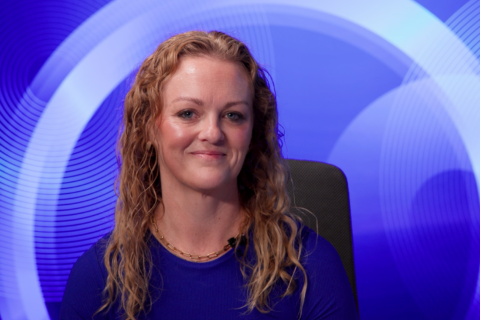Capital Bank rates its performance based on the success of the people and places it serves across the greater Washington metropolitan region.
“When we bank with local businesses, we take those deposits and reinvest them in building communities,” said Capital Bank CEO Ed Barry. “We have a consultative approach, and we want — as we say — to be ‘partners in our customers’ vision.’ Capital Bank is personally invested in the success of our clients. We try to get behind the numbers and find a way to say yes.”
That approach has helped the Rockville, Maryland–based bank thrive too. American Banker in June ranked Capital Bank fifth among banks with assets between $2 billion and $10 billion in its annual survey of top-performing banks.
Barry said that prestigious recognition validates his team’s entrepreneurial spirit and a culture at Capital Bank that has enabled it to help businesses and communities reach new heights.
WTOP talked with Barry, other Capital Bank leaders and its customers during a panel held at its newest location, at 1400 W St. Northwest in Washington, D.C.
The bank relocated its D.C. branch to W Street because Capital Bank for years has invested in businesses along 14th Street Northwest, an area often considered the creative and cultural nexus of the nation’s capital. The bank has played a role in the corridor’s resurgence through these investments, which has strengthened its commitment to the area’s success, Barry shared.
Face to face with customers preferred at Capital Bank
“Community banking is all about relationships,” said Jerome Bailey, vice chairman of the board of Capital Bank. “We depend on customers for deposits and insight for what is going on in a real-time fashion, and then we can take those assets and that data and invest back.”
Bailey, who started out as customer when he was growing his own business, Bailey Real Estate Holding, said building close partnerships with customers is a core tenet of how Capital Bank operates daily.
“We roll up our sleeves, and it is our job to get to know our clientele,” he said. “We don’t do desktop underwriting. We sit across the table from our customers and get information that might not translate on paper.”
In short, Capital Bank’s approach to banking is similar to the local businesses it serves: It doesn’t fit neatly in a box. Humanity, dependability and equity are driving forces behind the company’s ethos, Barry said. Capital Bank’s team views itself as an advocate for the small customer with big dreams and believes the bank isn’t just in a client’s zip code, it’s in that client’s corner.
Brian Edell, chief financial officer of My Dad’s Chips in Gaithersburg, Maryland, said he has personally experienced that sense of having Capital Bank as the business’s advocate.
“As we were looking for ways to grow, Capital Bank was the only bank to take us seriously and believed in us,” Edell said.
That support helped the business expand from what grew out of a potato chip–making hobby by Edell’s father into a snack business with significant distribution deals, he said.
Helping D.C. entrepreneurs achieve their dreams
There are countless Capital Bank stories like My Dad’s Chips — especially in D.C., said Capital Bank Senior Vice President Paul Merritt. He recalled 25 years ago when numerous empty storefronts dotted the 14th Street corridor. Now, he smiles with pride as he walks around the area, pointing out restaurants and other small businesses that Capital Bank helped launch.
“I love the diversity of this city. Everyone comes from different backgrounds,” Merritt said. “It is very rewarding to work with people and to help them achieve their goals. A lot of our clients came to this area with little more than their clothes on their back and, with the help of Capital Bank, they now have successful businesses.”
Given its small footprint relative to large nationwide competitors, the bank has the advantage of being nimble and able to act quickly to changing economic circumstances, said Steve Poynot, Capital Bank’s president and chief operating officer. He added that the bank’s team prides itself on identifying where the local economy and broader financial markets are going and then pivoting to meet the needs of Washington metropolitan businesses.
“It’s exciting to see the next areas that will grow,” Poynot said. “We are not limited to one community. We have boots on the ground in so many places across the region. We have so much potential as we fill the void left by community banks that have grown or consolidated.”





